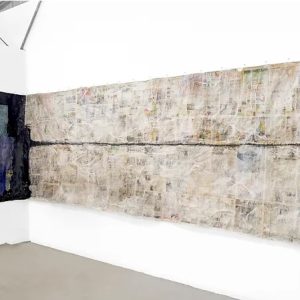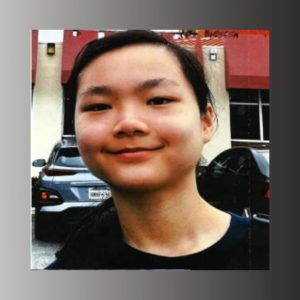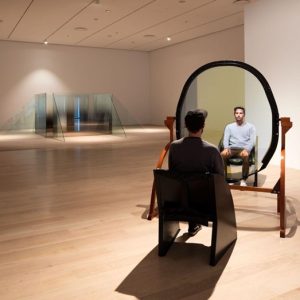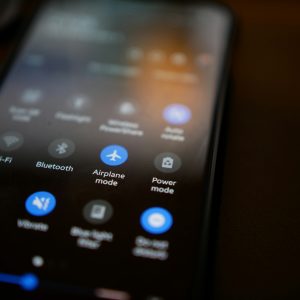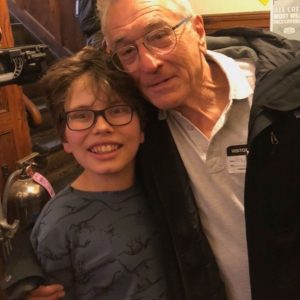 View Winners →
View Winners → Unpacking ‘Her Portmanteau’ at Boston Court Pasadena

– Courtesy photo / Boston Court Pasadena
By May S. Ruiz
Families, and the drama that’s inherent in each, is the topic of Mfoniso Udofia’s play ‘Her Portmanteau.’ It will have its West Coast premiere at Boston Court Pasadena from May 24 through June 30, 2018.
Directed by Gregg T. Daniel, who recently directed Lorraine Hansberry’s groundbreaking play ‘A Raisin in the Sun’ at A Noise Within, ‘Her Portmanteau’ stars Joyce Guy who plays the role of Abasiama the family matriarch. Completing the cast are Omoze Idehenre as Adiaha and Dele Ogundiran as Iniabisi.
A theatre graduate of Hampton University in Virginia, Guy was a member of the DC Black Repertory Company. She has performed at the Kennedy Center, Mark Taper Forum, and L.A. Women’s Shakespeare Company. Her screen and television credits include: ‘Moneyball,’ ‘The Santa Clause,’ ‘Animal Kingdom,’ ‘Criminal Minds,’ and ‘How to Get Away With Murder.’ She got an Ovation Award nomination for her choreography for ‘Les Blancs.’
This will be Guy’s debut performance at Boston Court Pasadena and she recalls how her involvement in the project came about. “This is the third time, in the last year and a half, that I’ve worked with Gregg. I choreographed ‘Les Blancs’ at Rogue Machine and ‘Raisin in the Sun,’ both of which he directed.
When I was at the performances of ‘Les Blancs,’ Jessica Kubzansky, Boston Court Pasadena’s Co-Artistic Director, was in the audience. I’ve known her for a while; I took a class with her a long time ago and we became friends. After the play she said to me, ‘Joyce, I have this play that I want you to audition for.’ And then I got a call from the casting director.”
Guy describes the play, “Her Portmanteau is the story of Abasiama, a Nigerian American mother who has two daughters. Her first daughter is Adiaha with her first husband who she met in college. When he was deported she decided that it was best to send Adiaha, who was six years old at the time, back with him to Nigeria. She has another daughter, Iniabisi, with her second husband whom they raised in Massachusetts where her job as a biologist took them. Iniabisi, a 30-year-old aspiring writer, lives in New York.”
“Abasiama has her hands full living with a husband who has mental health issues,” Guy adds. “But her life gets more complicated when Adiaha, who’s now 36, decides to come back to the United States.”
“In Nigeria the first daughter is called ‘adiaga’,” explains Guy. “When Abasiama informed her husband that she wanted to bring Adiaha to Massachusetts, he told her ‘Don’t bring her to my house; she’s not my daughter. My daughter is the ‘adiaga.’ Then he locked himself in the bathroom and started walking backwards. To avoid further conflict, Adiaha picks up Iniabisi from the airport and takes her to New York where she lives.”
Aside from the ‘baggage’ that ‘Her Portmanteau’ explores, it also literally refers to a suitcase. Reveals Guy, “It’s the same luggage that Adiaha took with her when she left for Nigeria with her father three decades ago.”
“It’s a great story, with a character who has several layers,” Guy says. “And as an actress it’s challenging but it’s a wonderful one. What keeps surprising me is that for someone who’s very direct in her everyday interactions with people, to the point of rude bluntness, she wasn’t forthcoming with important information about her family. She makes promises she can’t keep and it seems that she does it to make herself feel better. She’s a woman of many contradictions.
One Sunday morning, she woke up and made a pivotal decision without thinking things through. As I said to Gregg, I imagine that having lived with a second husband who has mental instability she would have developed some psychological problems. She had to build coping mechanisms which were also faulty and she couldn’t really function properly.”
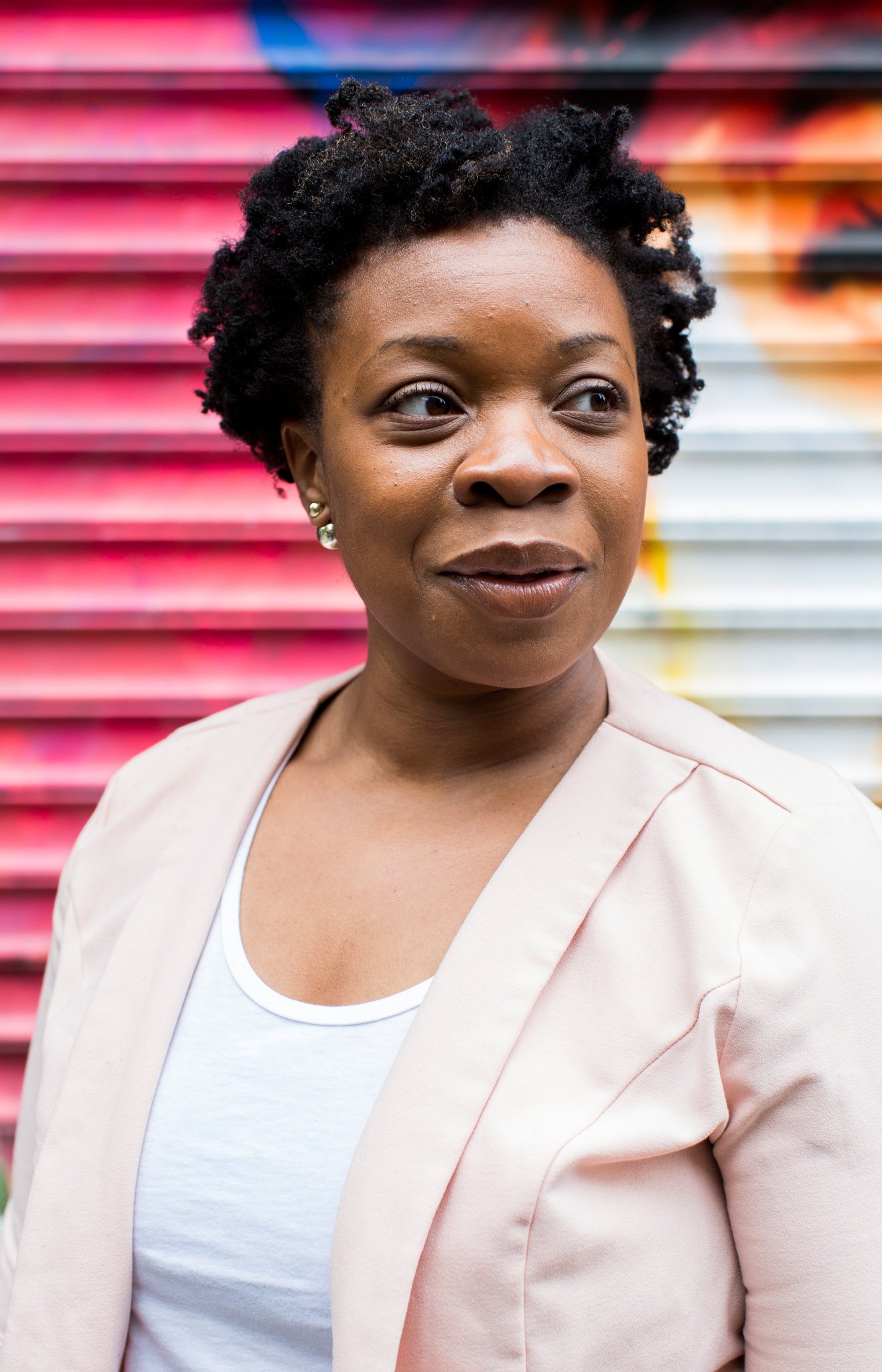
Mfoniso Udofia. – Photo by Frances F. Denny / NY Times
According to Guy she doesn’t have anything in common with the character, “There really isn’t anything about Abasiama that I could relate to because I don’t have children. It’s also a challenge to learn a whole culture you’re not familiar with. The play is very specific in its culture, the people, and the language; and we have to honor that. Ibibio is tonal and learning the phrases used throughout the play proved daunting.”
“I’m African American but I studied West African dance so I’ve been to Senegal, Mali, Guinea, and Gambia,” continues Guy. “I made a film in Senegal; I have a friend who’s Nigerian so I’m familiar with the West African culture. That’s different from being involved in a culture so I have to go deeper to inhabit Abasiama’s character. Gregg lets the actors find their direction in the script, through our research, by observing how Nigerians speak, carry themselves and their bodies, and in relationship with the other actors.”
Living among people of different culture isn’t an entirely novel experience for Guy, though. She discloses, “I was an army brat. My father was in the Air Force and we moved every three years. I’ve lived in Japan, Taiwan, Texas, Kansas, and Delaware.
“When people inquire where I’m from, sometimes I say Delaware because that’s where by father retired after active duty. At other times I say Montgomery because both my parent are from Montgomery, Alabama. I was actually born there and we stayed there until I was three years old when we moved to Texas. After Texas we lived in Taiwan; from there we went to Florida; after that we went to Japan; then to Kansas; and finally to Delaware.”
“Because we moved around a lot I’m often asked which culture I found the most appealing to me. In fact, someone asked me that two days ago, and I said Taiwan. We lived in a compound with other Americans but we had to move to a bigger house because there were five of us. We had free range, we’d walk everywhere, we’d go down to the rice paddies. My best friend was a man who had a food truck that sold bananas and he would give me some. The Taiwanese kids were very curious about us and would touch our skin and our hair. I have wonderful, memorable experiences. But the funny thing is, I couldn’t stand the smell of garlic. I was five, okay?,” Guy says defensively.
Taking on this role in ‘Her Portmanteau’ has given Guy an opportunity to grow as an actor. She says, “I’m learning that I’m more determined and resilient than I thought. I have learned to come to terms with my weaknesses and that I have to put in the work. In order for me to honor Mfoniso’s words, Gregg, and the other actors, I have to go the extra mile. As rehearsals progress, we’ll be able to get to the whole dynamic of this family.”
“There is a universal theme to this play. It’s about family dynamics and dysfunction, things we all can relate to; there’s no perfect family. For me, the biggest takeaway would be that we all have regrets; we’ve all done something that weighs on us. But you can work past that as long as you’re forthcoming and honest with yourself. The thought may not go away but you can go forward from there,” concludes Guy.
While Mfoniso Udofia’s ‘Her Portmanteau’ is semi-autobiographical, this taut and poignant drama about relatives, legacy, and connections will resonate with all of us. Some of us will recognize our particular family’s dysfunction and see ourselves in one of the characters. Because as different as every one of us is, we all share a human-ness that is imperfect.













